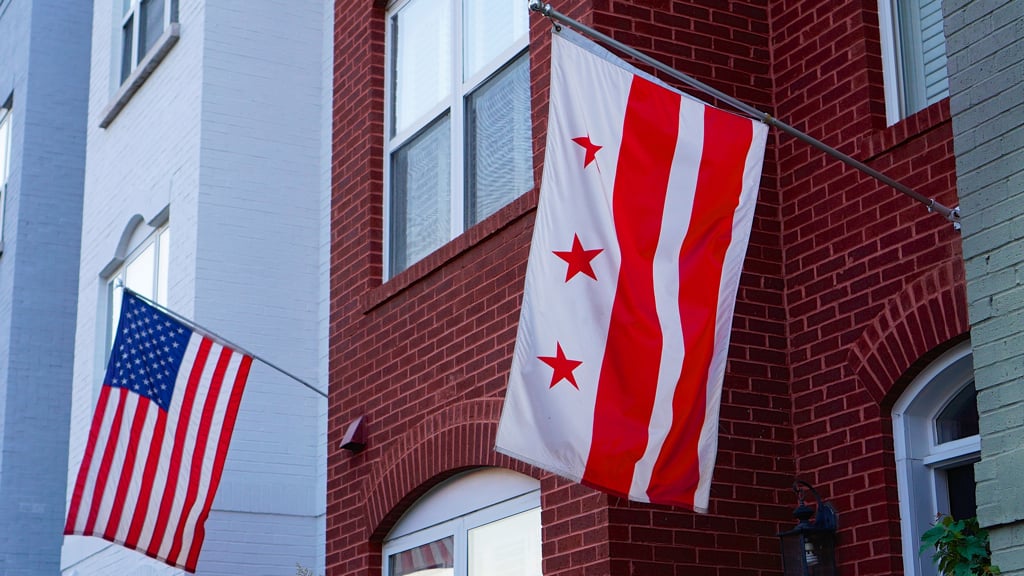During a breakfast celebrating Emancipation Day, the anniversary of President Abraham Lincoln’s 1862 proclamation that freed the 3,100 slaves living in the District, Mayor Muriel Bowser announced her intentions to place a referendum on statehood on the city’s general-election ballot this year.
There’s no doubt the city’s voters will line up in favor of making DC the 51st state—a Washington Post poll last November found that 70 percent of residents want it—but statehood isn’t the same as a minimum-wage hike, which may also appear on this year’s ballots, or marijuana legalization, which voters approved in 2014. President Obama, soon to be a civilian resident of Washington for at least a few years, has come around to supporting it. Future Pennsylvania Avenue hotel operator Donald Trump has said that he would support “whatever’s best” for District residents, up to and including statehood.
But even with this broad coalition, a vote on statehood can’t do much. Sadly, the only power to admit new states into the union rests with Congress, according to Article IV, Section 3 of the Constitution:
New states may be admitted by the Congress into this union; but no new states shall be formed or erected within the jurisdiction of any other state; nor any state be formed by the junction of two or more states, or parts of states, without the consent of the legislatures of the states concerned as well as of the Congress.
The Congress shall have power to dispose of and make all needful rules and regulations respecting the territory or other property belonging to the United States; and nothing in this Constitution shall be so construed as to prejudice any claims of the United States, or of any particular state.
The moral case for statehood is obvious: District residents are required to pay federal income taxes, serve in the military, and work in an economy that has become less and less reliant on the federal government. For their efforts, they’re rewarded with a single, non-voting delegate in the House of Representatives, zero presence in the US Senate (save the mayor’s relatively obscure and unused privilege to visit the floor), and constant meddling from grandstanding members of Congress who represent parts of the country that do not really resemble a diverse, coastal city. And at least one member has seen DC’s thriving, privately developed waterfront and wished for the city to be hit by a crippling recession.
So it makes sense that a referendum on statehood would be a political winner for Bowser. Her administration already plans to jab Congress by skipping the onerous—but legal—process of having the District’s next municipal budget be approved as component in a federal spending package and just start enacting it.
But self-declared statehood is a few steps beyond self-declared budget autonomy, and votes on the issue in other disenfranchised parts of the United States have been historically toothless. In 2012, 54 percent of voters in Puerto Rico said the opposed the island’s current status as “commonwealth” (a slightly dignified alternative for “territory”), while 61 percent chose full statehood as their preferred status.
“While District residents may not have a vote in Congress, they are able to make their voices heard at the ballot box,” Michael Czin, Bowser’s spokesman, tells Washingtonian in an email. “It’s also worth nothing that there’s a precedent for voters having an opportunity to vote on their path toward statehood.”
Puerto Rico, as of this writing, retains its commonwealth status. The same will likely be true for the District even if 70 percent or more people vote for statehood this fall.



















